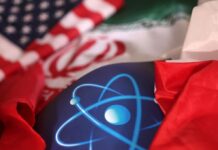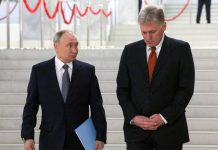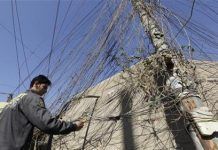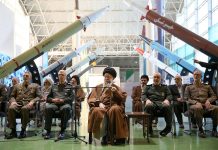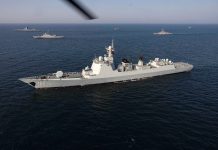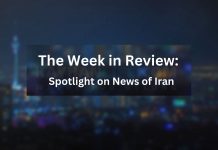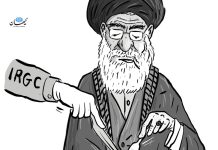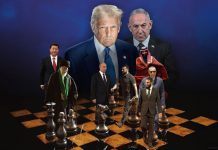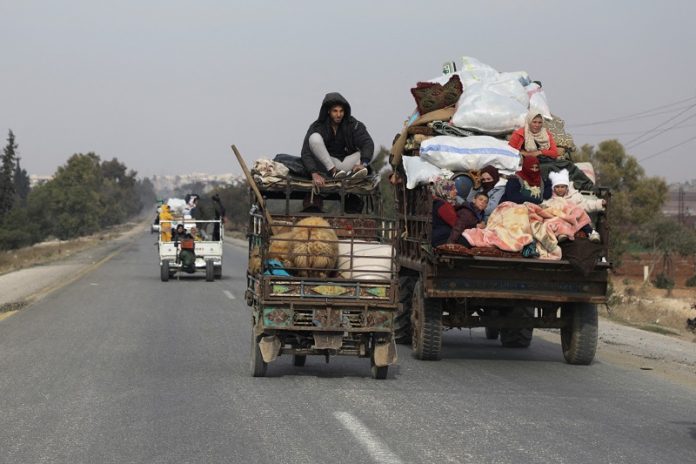
By Maya Gebeily and Timour Azhari
DAMASCUS, Dec 11 (Reuters) – Syria’s new interim prime minister said he aimed to bring back millions of Syrian refugees, protect all citizens and provide basic services but acknowledged it would be difficult because the country lacked foreign currency.
“In the coffers there are only Syrian pounds worth little or nothing. One U.S. dollar buys 35,000 of our coins,” Mohammed al-Bashir told Italian newspaper Il Corriere della Sera.
“We have no foreign currency and as for loans and bonds we are still collecting data. So yes, financially we are very bad.”
Bashir ran the rebel-led Salvation Government in a tiny pocket of northwestern Syria, before the 12-day lightning rebel offensive swept into Damascus and toppled veteran autocrat President Bashar al-Assad.
Rebuilding Syria will be a colossal task following a civil war that killed hundreds of thousands of people. Cities have been bombed to ruins, swathes of countryside depopulated and the economy gutted by international sanctions. Millions of refugees still live in camps after one of the biggest displacements of modern times.
With European countries pausing asylum applications from Syrians, some refugees from Turkey and elsewhere began making their way home.
Two Former Syrian Intelligence Officials Face US War Crimes Charges
U.S. officials, engaging with rebels led by Hayat Tahrir al-Sham (HTS), urged them not to assume automatic leadership of the country but instead run an inclusive process to form a transitional government.
The new government must “uphold clear commitments to fully respect the rights of minorities, facilitate the flow of humanitarian assistance to all in need, prevent Syria from being used as a base for terrorism or posing a threat to its neighbours,” U.S. Secretary of State Antony Blinken said in a statement.
HTS is a former al Qaeda affiliate that led the anti-Assad revolt. It has lately downplayed its jihadist roots but remains designated as a terrorist organisation by the United Nations, United States, EU, Turkey and others.
In a brief address on state television on Tuesday, Bashir said he would lead the interim authority until March 1.
Behind him were two flags – the green, black and white flag flown by opponents of Assad throughout the civil war, and a white flag with the Islamic oath of faith in black writing, typically flown in Syria by Sunni Islamist fighters.
UN Rights Chief Urges Accountability in Syria, Sees Chance for Fair Transition
‘WALK TOGETHER IN FRIENDSHIP’
The world will be watching closely to see whether Syria’s new rulers can bring stability to a country where factions may seek revenge following a brutal civil war fought on sectarian and ethnic lines.
The pope, in his first public remarks about Syria since the ending of al-Assad’s rule, called on the country’s diverse religious groups to “walk together in friendship and mutual respect for the good of the nation”. Several ancient Catholic rites are among the many minority sects concerned about rule by a government with roots in Islamist militancy.
For refugees, the prospect of returning home has brought a mixture of joy and grief over hardship in exile.
Ala Jabeer cried as he prepared to cross from Turkey into Syria with his 10-year-old daughter on Tuesday, 13 years after the war forced him to flee his home. He returns without his wife and three of his children who died in devastating earthquakes that struck the region last year.
“God willing, things will be better than under Assad’s government. We’ve already seen that his oppression is over,” he said.
In the capital Damascus, banks reopened for the first time since Assad’s overthrow on Tuesday. Shops also opened again, traffic returned to the roads, cleaners were out sweeping the streets and there were fewer armed men about.
U.S. CAUTION
U.S. Deputy National Security Adviser Jon Finer told Reuters Washington was still working out how it will engage with the rebel groups.
Finer said a contingent of about 900 U.S. troops on a counter-terrorism mission in northeastern Syria would be staying there. The top U.S. general responsible for the Middle East visited them on Tuesday.
State Department spokesperson Matthew Miller declined to say whether Washington would lift HTS’s terrorist designation.
“We have seen over the years any number of militant groups who have seized power, who have promised that they would respect minorities, who have promised that they would respect religious freedom, promised that they would govern in an inclusive way, and then see them fail to meet those promises,” he said.
OPINION: The Solution to the ‘Iran Problem’ is Regime Change
Regime Change Is Only Solution For Iran, Say DC Conference Speakers
ISRAELI INCURSION
The rebels’ victory has shifted power dynamics in the region, a major blow to the Iran-led “Axis of Resistance” political and military alliance, which also includes Lebanon’s Hezbollah, armed groups in Iraq, Yemen’s Houthis and Hamas, all opposing Israeli and U.S. influence in the Middle East.
In a speech reported by state media, Iran’s Supreme Leader Ayatollah Ali Khamenei struck a defiant tone about the pressure on Iran and its proxies.
“The more pressure you exert, the stronger the resistance becomes. The more crimes you commit, the more determined it becomes. The more you fight against it, the more it expands,” Khamenei said.
“Iran is strong and powerful—and will become even stronger,” he said.
Assad’s fall was hailed by his enemy Israel, which moved tanks across the border and launched airstrikes to destroy the hardware of Assad’s defunct army, saying it aimed to ensure weapons would not fall into hostile hands.
The Israeli military said it had struck most of Syria’s strategic weapons stockpiles in the past 48 hours. Defence Minister Israel Katz said it aims to impose a “sterile defence zone” in southern Syria that would be enforced without a permanent troop presence.
Israel acknowledged on Tuesday that its troops had taken up some positions in Syria beyond a demilitarised zone established following the 1973 Middle East war, though it denied they were advancing towards Damascus.

